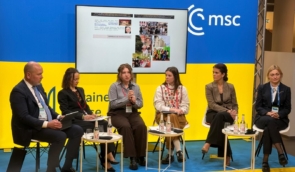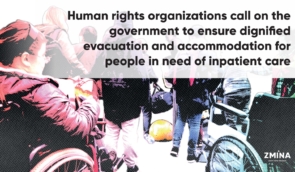Human rights activists named 35 criminal officials in Crimea who should be sanctioned
The Human Rights Centre ZMINA has identified 35 officials in Crimea who are involved in the persecution of the civilian population and who should be sanctioned. Among these officials are FSB employees, prosecutors, judges, heads of prisons and heads of medical services of the penitentiary system.
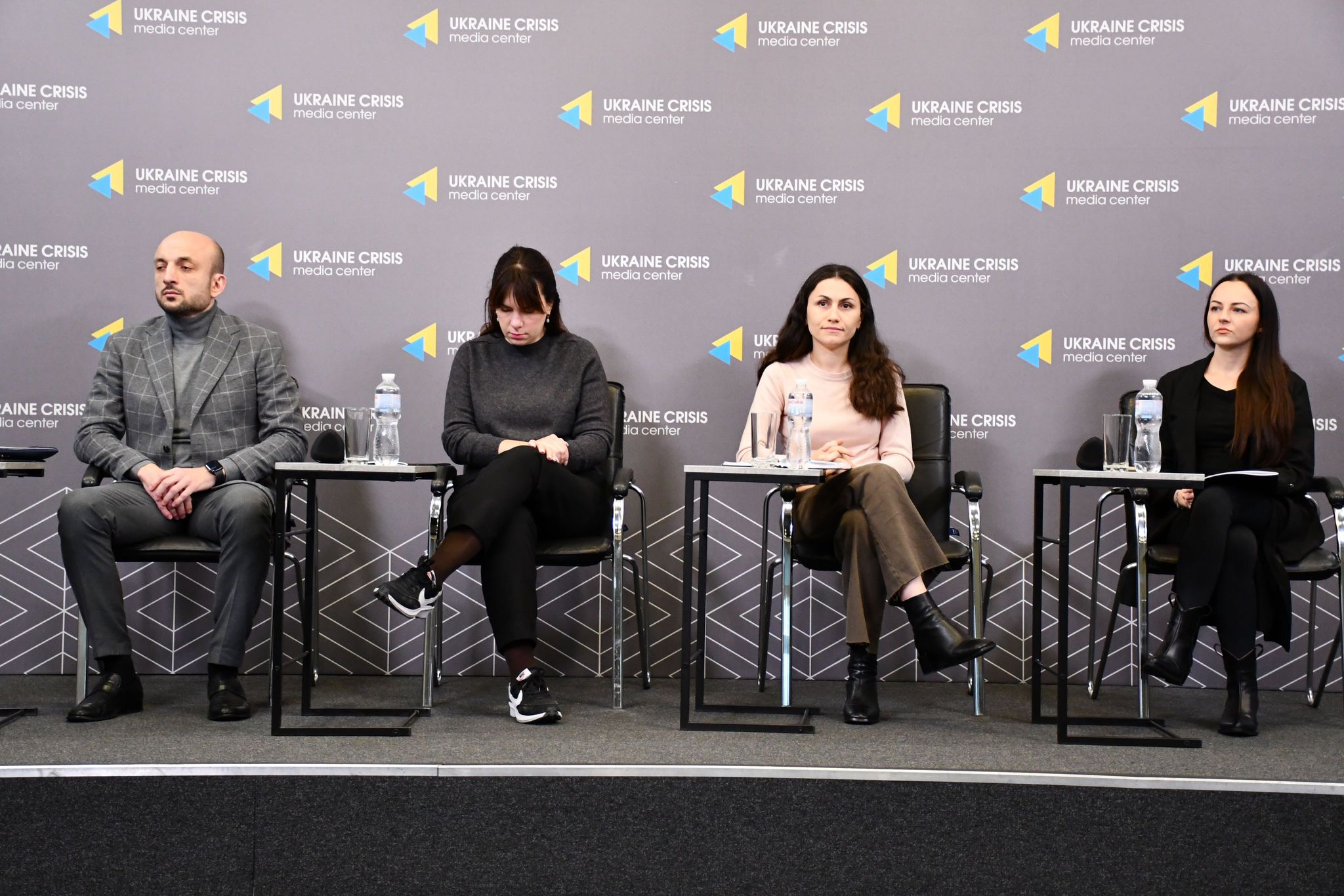
This became known on October 21 during a press conference in Kyiv, at which human rights defenders presented the “Black List of Officials“.
As Viktoria Nesterenko, Project Manager of the Human Rights Centre ZMINA, reported, during the 10 years of the occupation of Crimea, human rights defenders have recorded many facts of enforced disappearances, torture, politically motivated persecution and illegal imprisonment of Crimean activists. Crimeans are being prosecuted on fabricated criminal cases of terrorism, extremism, sabotage, as well as espionage and treason.
“During the 10 years of occupation, the Russian Federation sentenced more than 300 residents of Crimea on political grounds, as a result of which at least 218 political prisoners are currently in the prisons of Crimea and Russia. No one has been punished for these crimes yet,” commented Viktoria Nesterenko.
ZMINA experts collected information about the employees of the FSB of the Russian Federation, investigators, prosecutors, judges, heads of pre-trial detention centres, prisons and medical services who persecute activists, journalists, human rights defenders and representatives of the pro-Ukrainian public in Crimea.
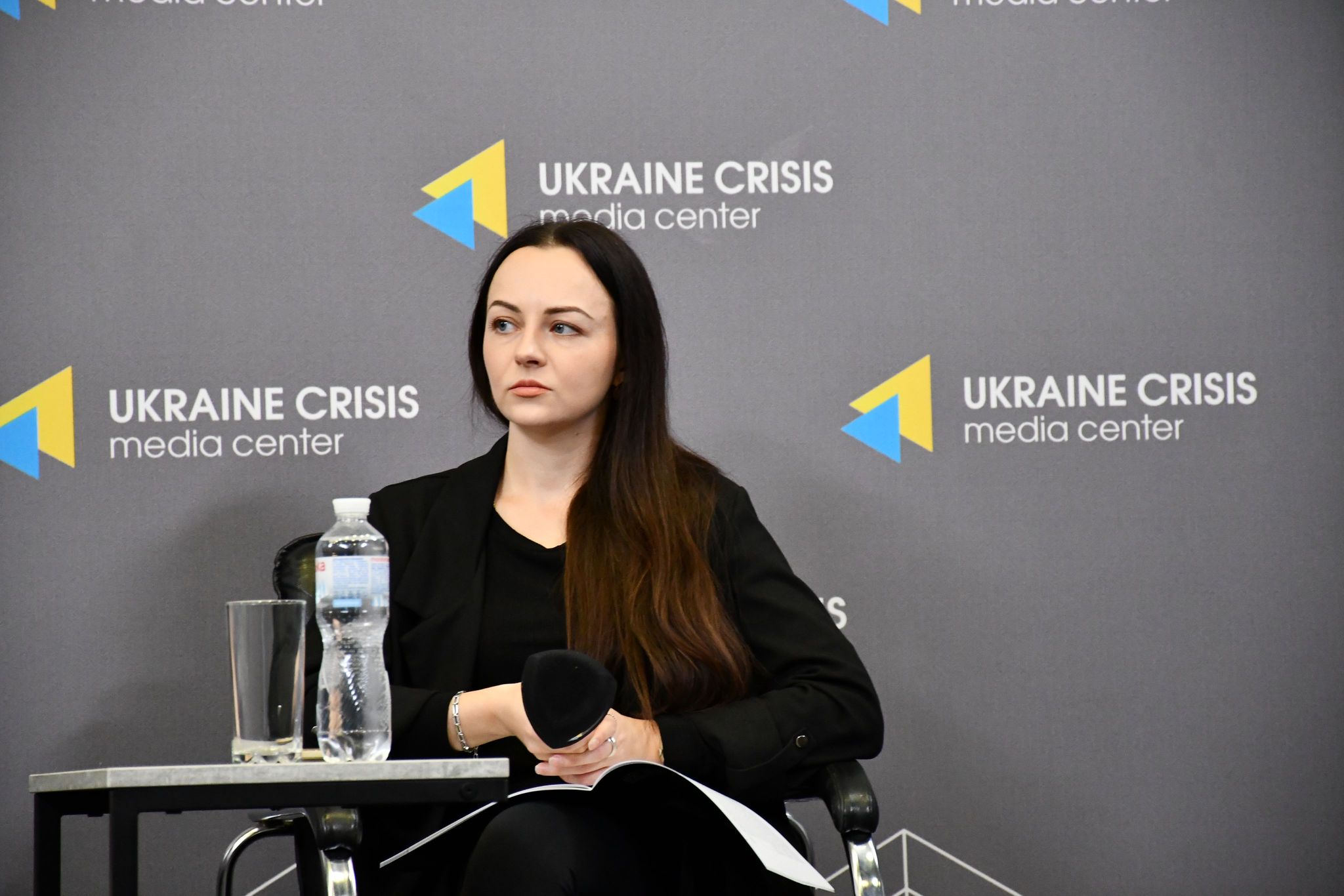 Viktoria Nesterenko
Viktoria Nesterenko“As a result, we identified more than 260 officials who are involved in harassment on the peninsula, but due to the restriction of access to personal data, 35 criminals were singled out from the general list, on whom sanctions can be imposed. For this purpose, we will pass these lists on to state bodies and the international community,” says Viktoria Nesterenko.
The list of 35 criminal officials included: Head of Moscow Pre-Trial Detention Centre No. 2 Andrey Shubin, Judge of the “Supreme Court of the Republic of Crimea” Yuliia Tsoraieva, Head of Penal Colony No. 4 in the Saratov region Zainulla Rushanov, Head of Medical and Sanitary Unit No. 91 in Simferopol Pavel Pavlenko, Head of the Crimean Department of the FSB of the Russian Federation Leonid Mykhailiuk, Head of the SIZO-1 in Simferopol Pavel Lazarenko, Judge of the “Kyiv District Court of Simferopol” Oksana Karchevska/Bilosorochka, Judge of the Third Appeal Court of General Jurisdiction in Sochi Elena Kaporina, Senior Investigator of the Department of the FSB of Russia in Crimea Vitalii Vlasov and others.
In particular, Vitalii Vlasov drew up a protocol against Radio Liberty Freelance Journalist Vladyslav Yesypenko, which indicated the explosive components allegedly found in the journalist’s car. Oksana Karchevska/Bilosorochka made unjust decisions in the case of journalist and activist Iryna Danylovych. Pavel Lazarenko is responsible for the improper detention conditions and failure to provide medical aid, in particular, to the Crimean Tatar activist Dzhemily Hafarov, who died in prison as a result. Andrey Shubin is responsible for the death of political prisoner Kostiantyn Shyrinh, who also died due to the lack of medical assistance.
Narhuzel Abibulaieva, an Analyst at the Human Rights Centre ZMINA, noted that a challenge during the research was limited access to personal data of officials from open and closed sources because in recent years the Russian Federation has been trying to hide from the public data about officials who persecute the civilian population in Crimea.
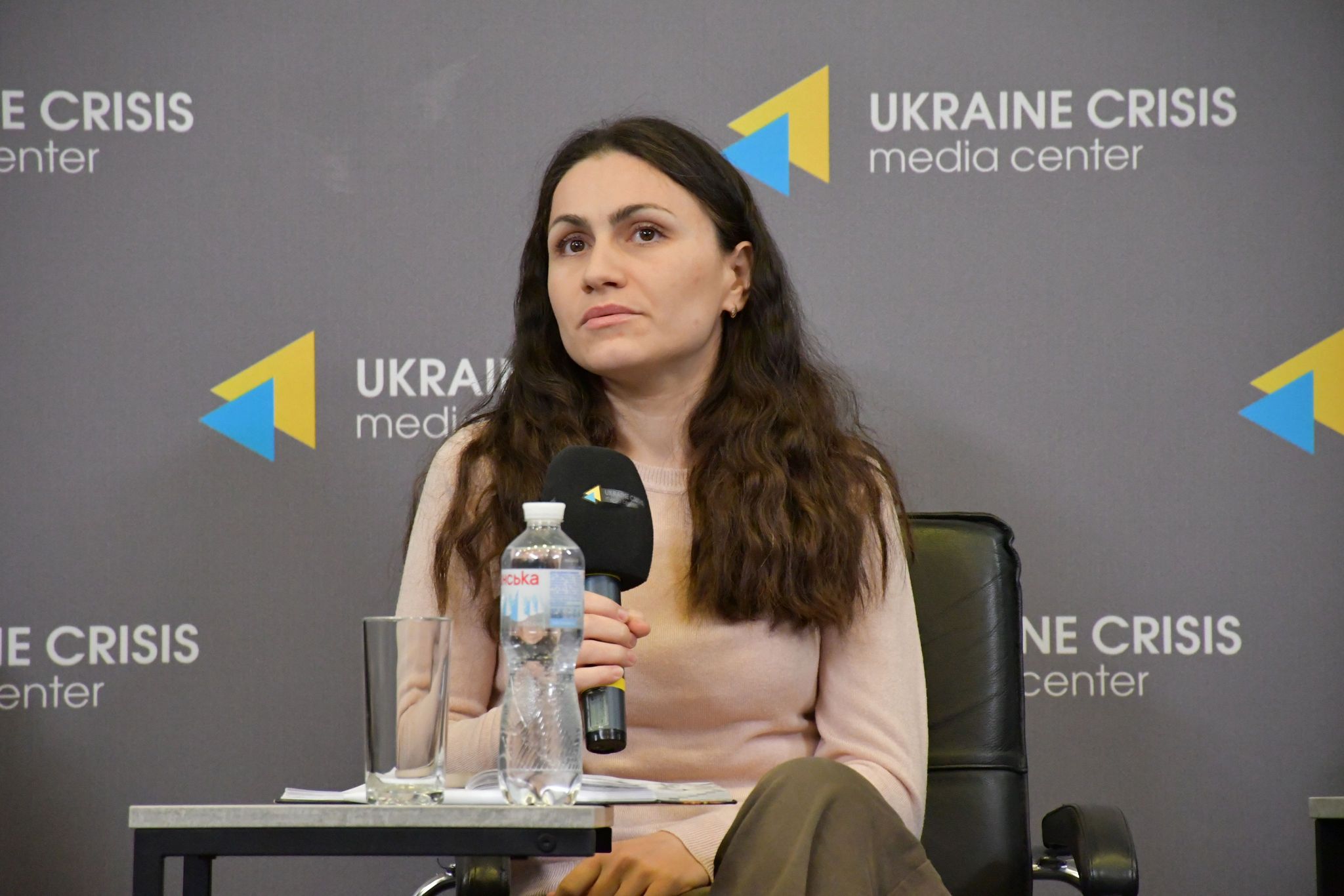 Narhuzel Abibulaieva
Narhuzel Abibulaieva“Also, a large number of cases that proceed under the articles of “treason” and “sabotage” are classified both for the relatives of the victims and for the public. This makes it impossible to search for information from open sources, and there is not enough data for their qualitative systematization to impose sanctions,” commented Abibulaieva.
Olha Kuryshko, Deputy Permanent Representative of the President of Ukraine in the Autonomous Republic of Crimea, noted that such research is an opportunity to know what is really happening in the occupied territories. The representative office also prepares sanctions lists and submits them to the National Security and Defense Council of Ukraine. According to Kuryshko, in the last decree of the President of Ukraine, dated October 8, 2024, sanctions were applied to 11 judges, the data on which was sent by the Presidential Representation in Crimea.
First Deputy Head of the Prosecutor’s Office of the Autonomous Republic of Crimea and the City of Sevastopol Vitalii Sekretar reported that they have already adopted more than 600 indictments against officials in Crimea, including collaborators:
“These are different categories of crimes – from treason to war crimes, but it is worth noting that even in cases of crimes against national security there are facts of persecution of the Crimean population. We have also already passed 131 judgments regarding these categories,” added Vitalii Sekretar.
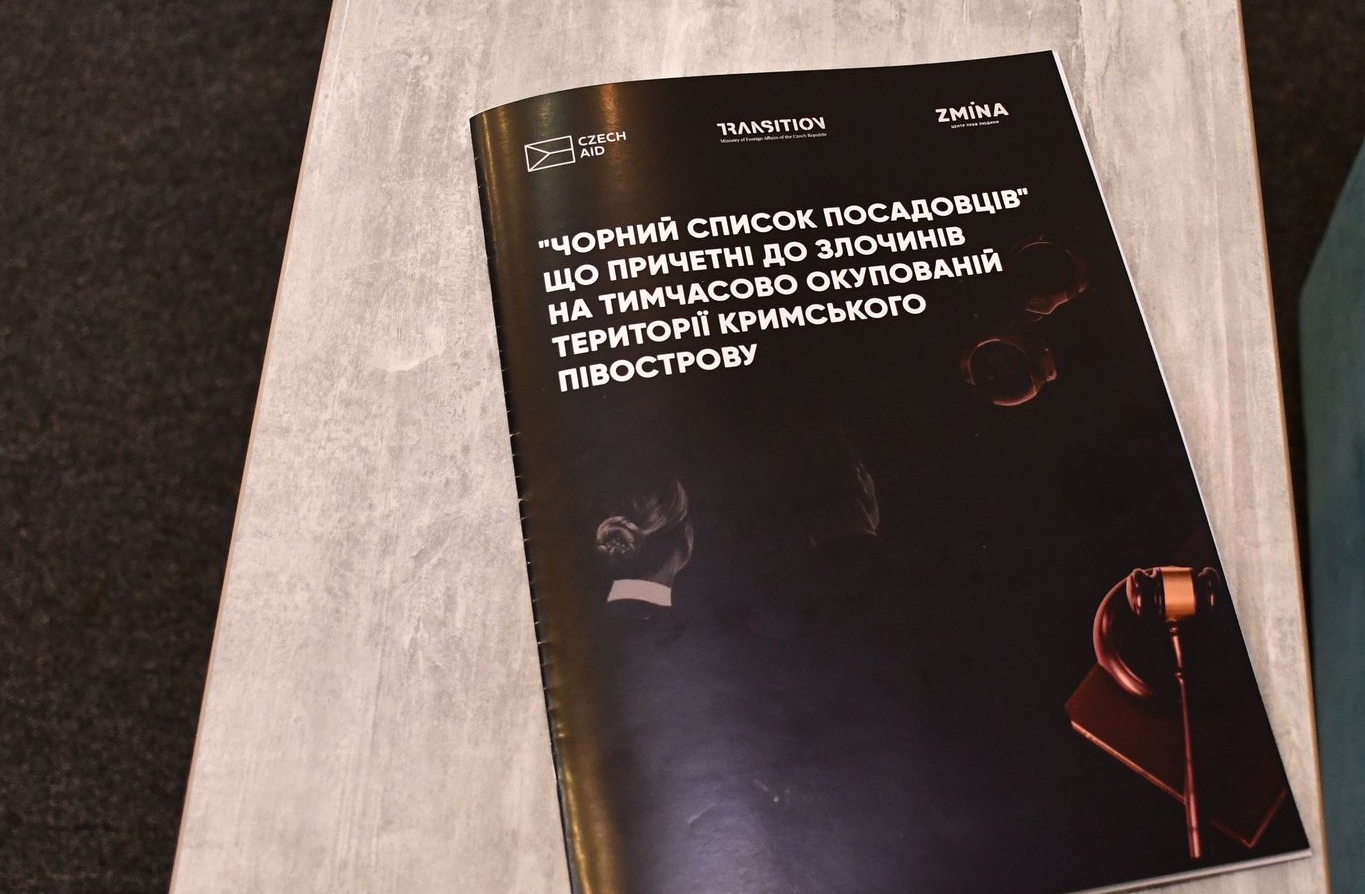
The text of the study and the list of officials involved in the persecution in Crimea can be found here.
Video from the press conference at the link.
If you have found a spelling error, please, notify us by selecting that text and pressing Ctrl+Enter.


